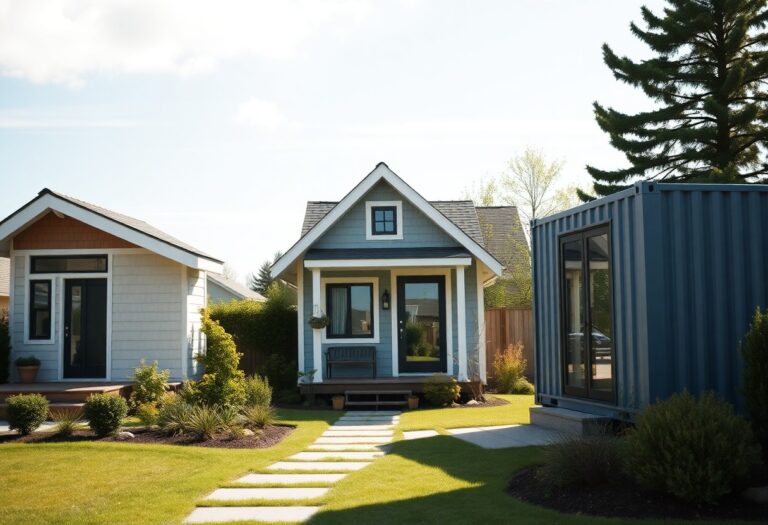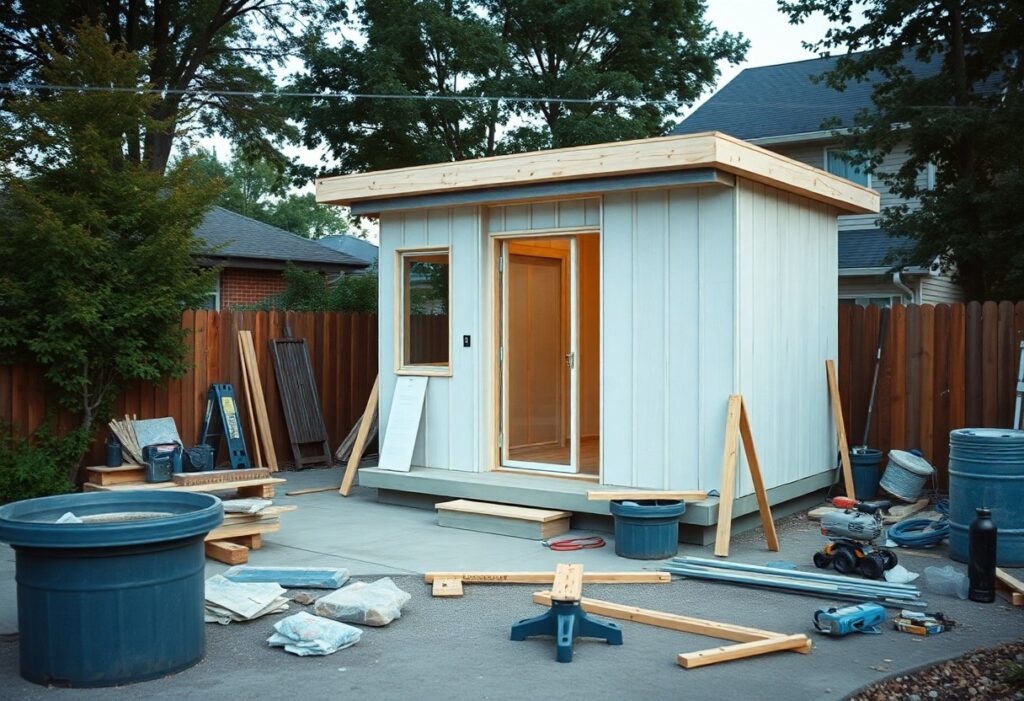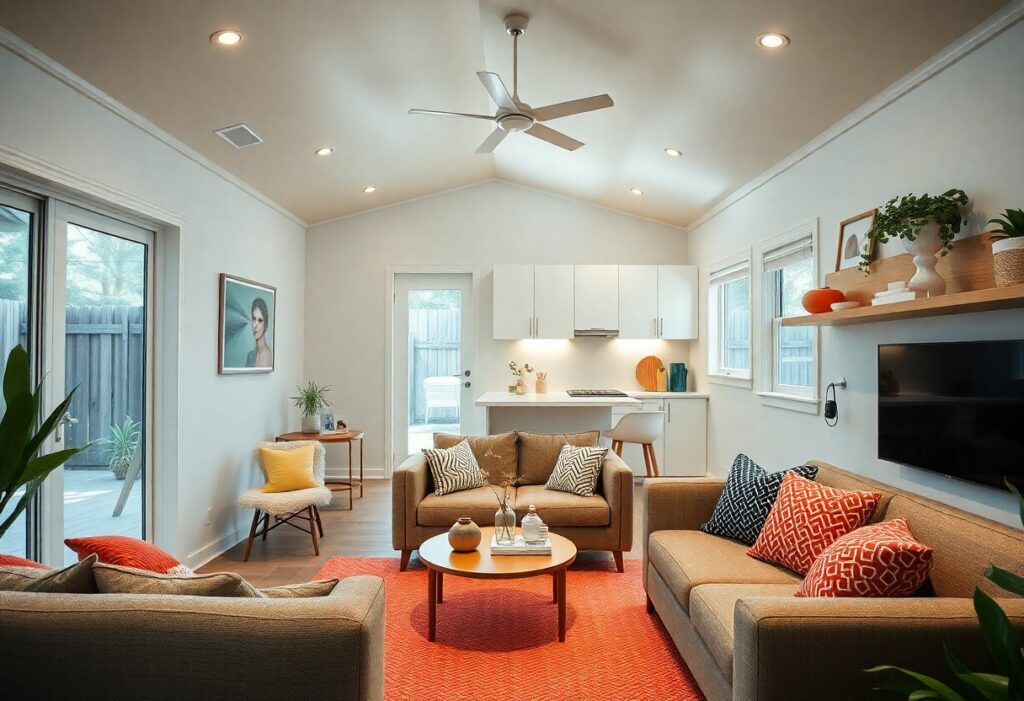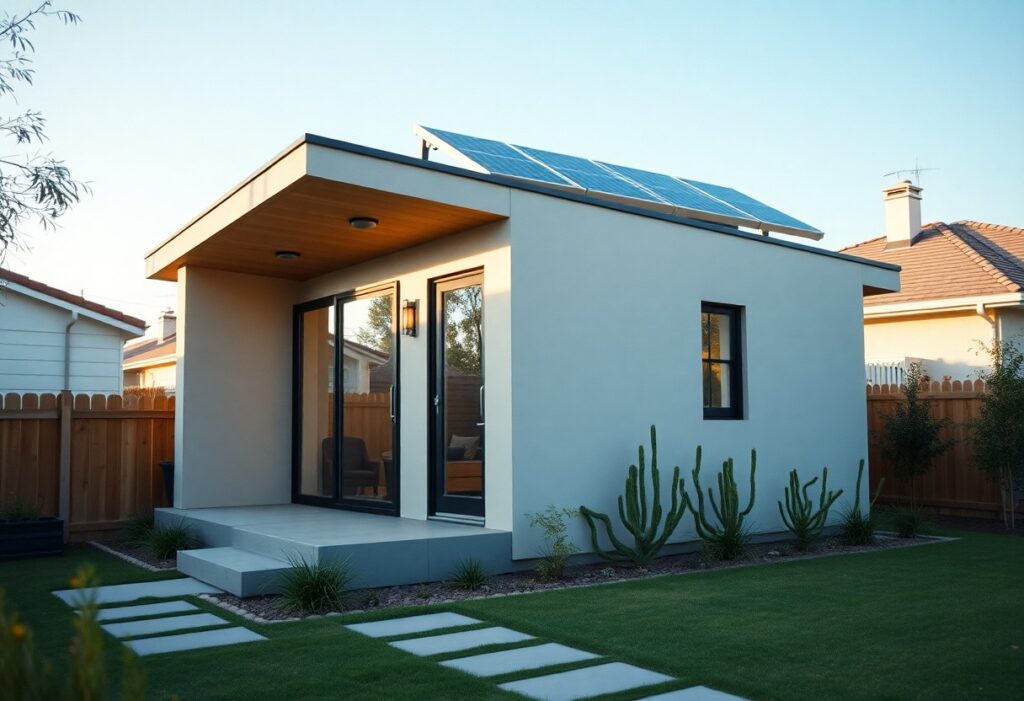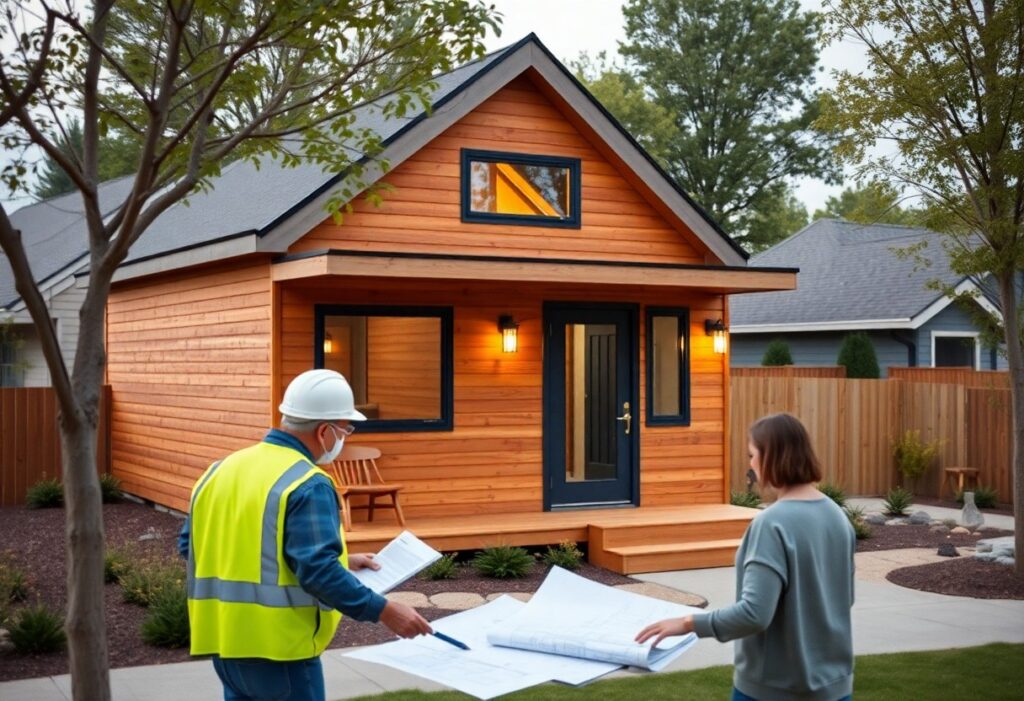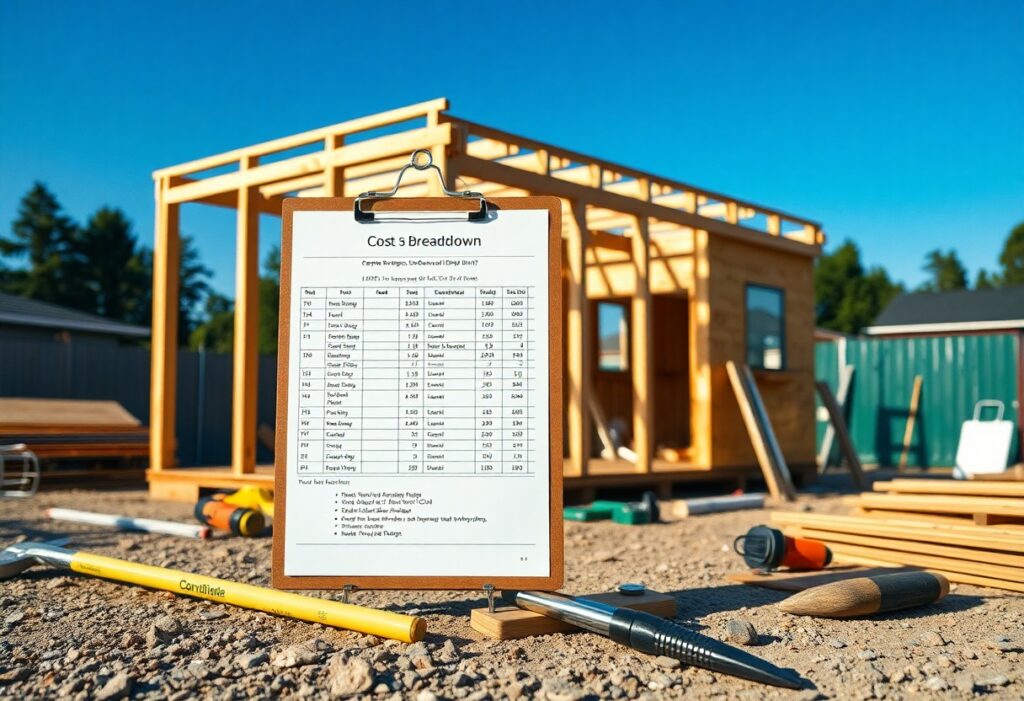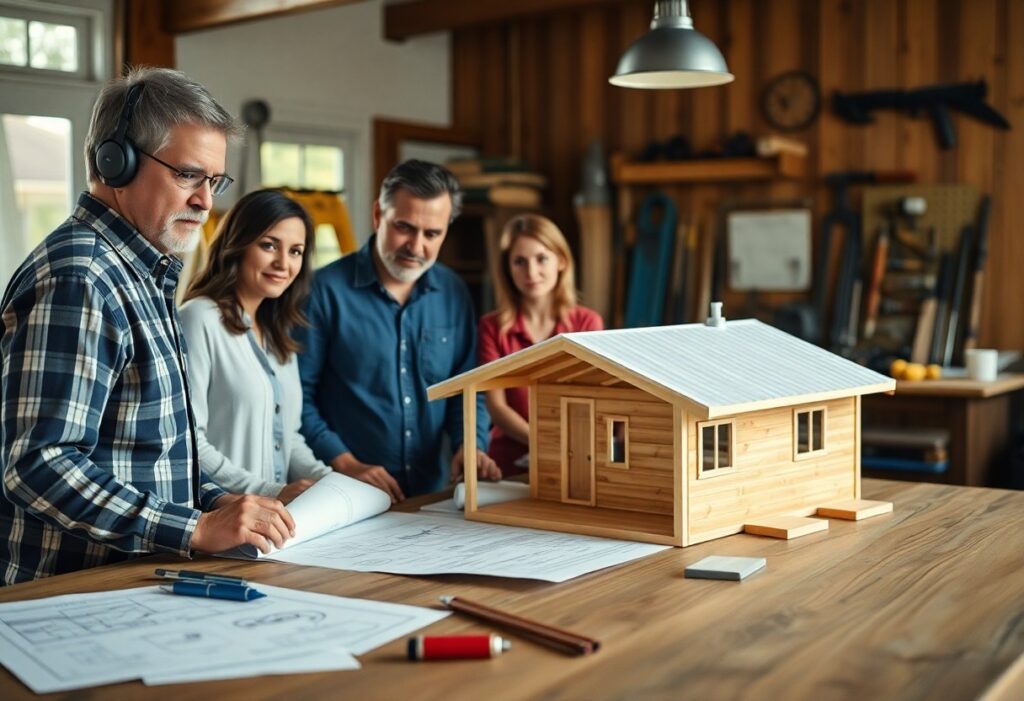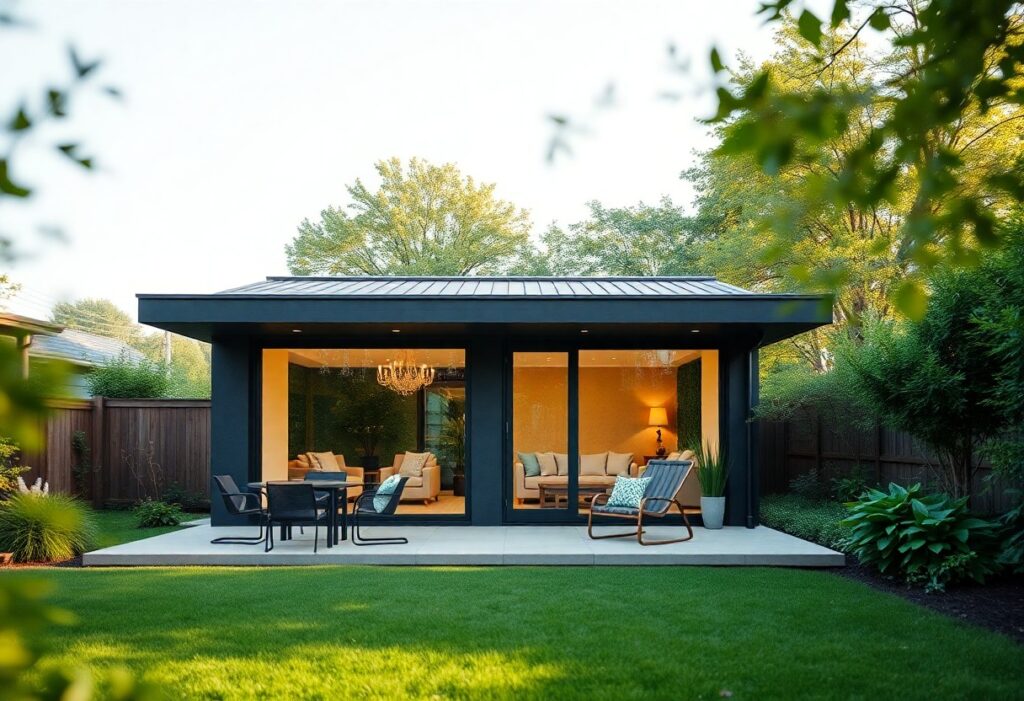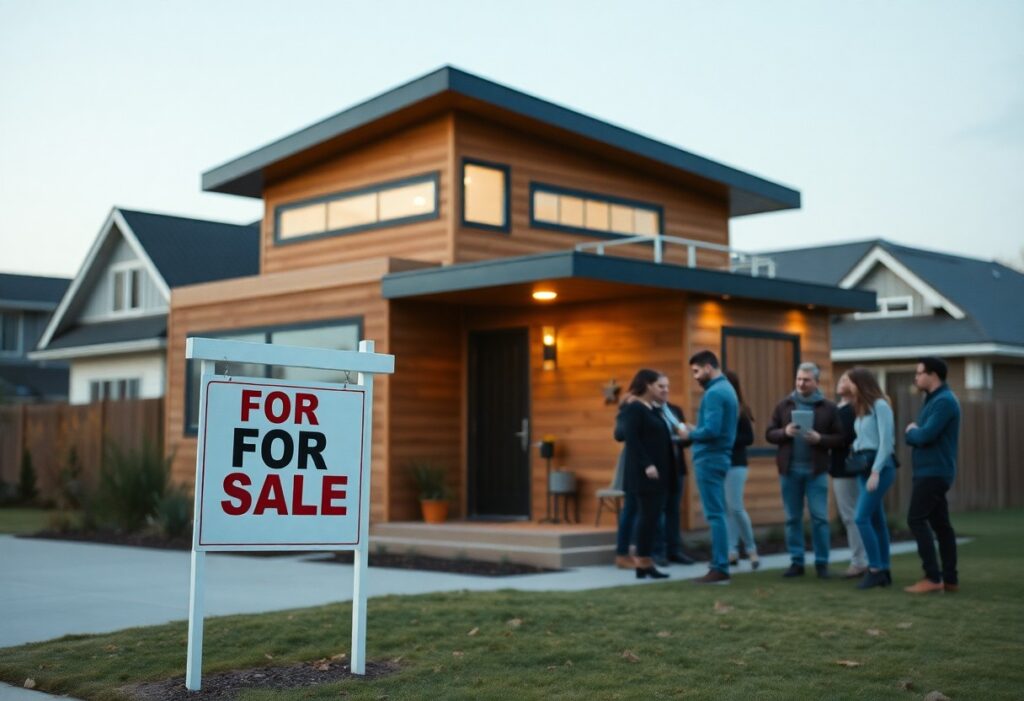Just when you thought increasing your property value couldn’t be simpler, you’re in for a surprise. Accessory Dwelling Units (ADUs) offer a highly effective way to enhance your investment, with certain types showing a strong return on investment. In this post, you’ll discover the top three ADU types that not only elevate your property appeal but also provide financial benefits as rental spaces or for modern living solutions. Dive in to find out how these additions can significantly impact your real estate’s worth.
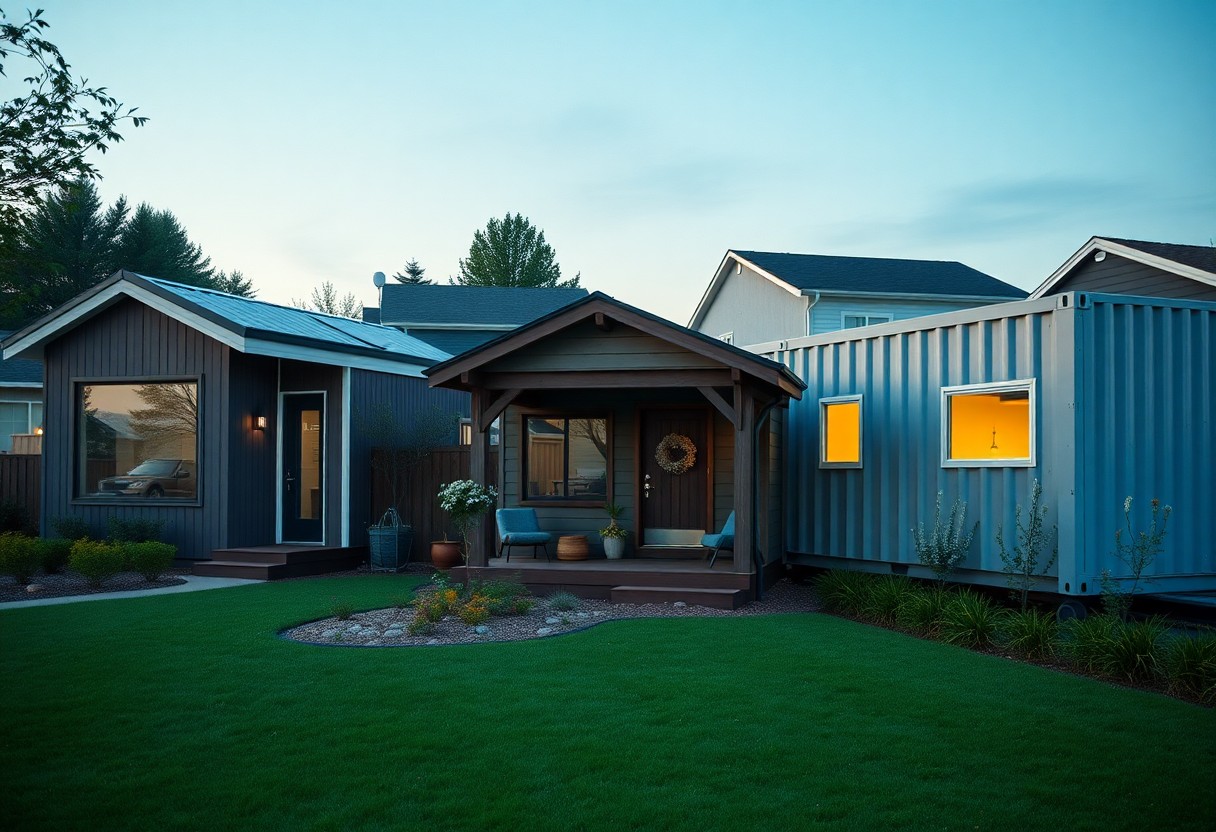
Key Takeaways:
- Detached ADUs: Standalone structures that offer privacy and flexibility, making them highly attractive for renters and increasing property value.
- Attached ADUs: Integrated living spaces that provide ease of access to the main home while maximizing square footage, appealing to families seeking multigenerational living options.
- Conversion ADUs: Transforming garages, basements, or attics into livable spaces allows for cost-effective upgrades, enhancing property value and rental potential with minimal construction stress.
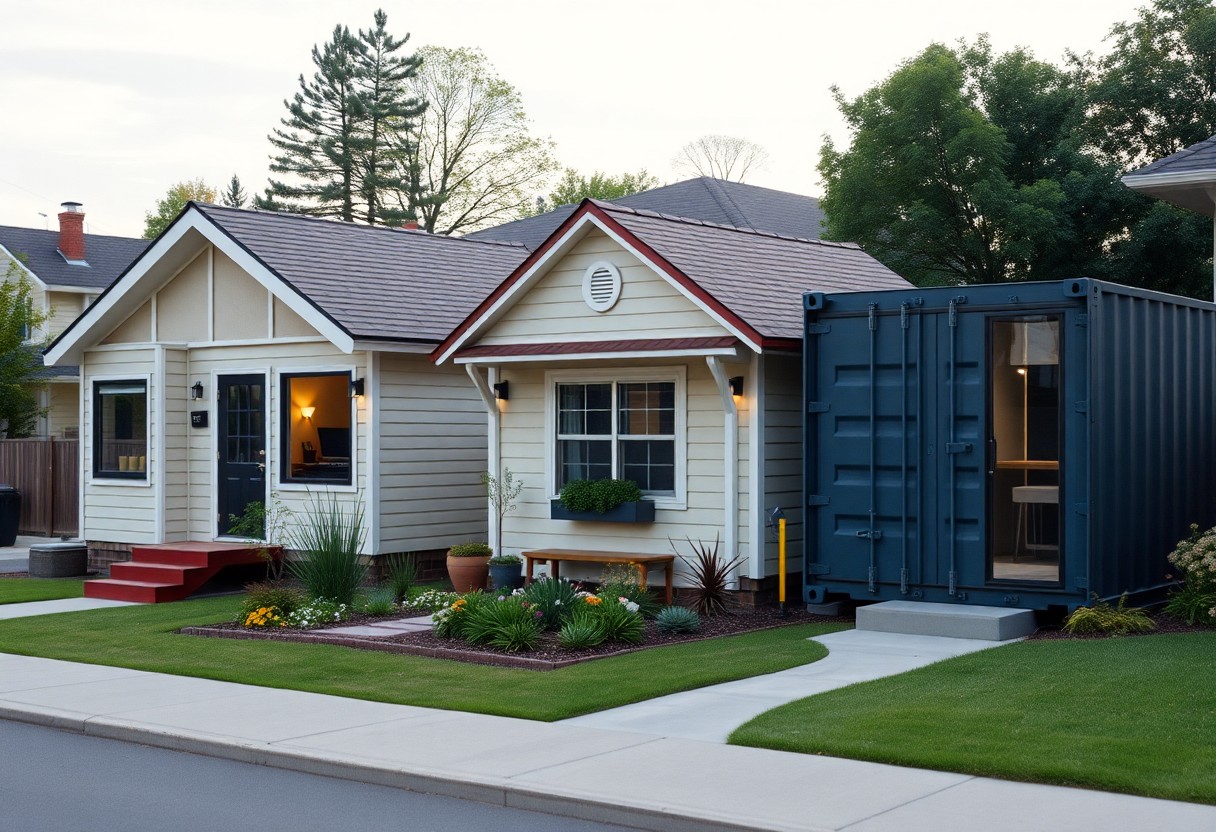
Understanding ADUs
For homeowners looking to enhance their property value, understanding Accessory Dwelling Units (ADUs) is crucial. These secondary housing units can be attached or detached from the primary residence and offer a versatile solution for various living arrangements. Whether you want to provide rental income or create a space for family members, ADUs are a valuable addition to your property.
Definition of Accessory Dwelling Units
Below, Accessory Dwelling Units (ADUs) are secondary housing units located on the same lot as a primary residence. They can take several forms, including basement apartments, converted garages, or standalone tiny homes, and are designed to accommodate different living arrangements.
Benefits of ADUs
The advantages of ADUs are numerous and can have a significant impact on your property’s value. They provide an opportunity for rental income, increase your home’s overall living space, and offer flexibility for multi-generational living.
And by integrating an ADU into your property, you not only create additional income opportunities through rentals but also enhance property value. This added space can appeal to potential buyers looking for versatile living solutions, especially in urban areas where housing is in high demand. Furthermore, ADUs contribute to homeowner flexibility, allowing you to accommodate aging relatives or provide a separate living space for adult children, making your property more desirable in the eyes of potential buyers.
Rank #1: Detached ADUs
There’s no doubt that detached ADUs stand out as the top choice for increasing property value. These standalone units provide flexibility, privacy, and can easily attract a wider range of potential buyers or renters. Their independent nature allows for creative uses, such as guest houses, home offices, or rental units, ultimately enhancing the appeal of your property in the real estate market.
Design and Construction
Design plays a pivotal role in ensuring that your detached ADU complements your primary residence while being functional. Choosing high-quality materials and thoughtful layouts can significantly enhance its attractiveness. Whether you opt for a modern, rustic, or minimalist style, the architectural compatibility of your ADU with your home and surroundings will make it more appealing and functional for future occupants.
Impact on Property Value
With the addition of a detached ADU, your property’s value can substantially increase, thanks to the versatility and desirability these structures offer. Not only does it provide additional livable space, but it also opens multiple avenues for revenue, such as long-term rentals or Airbnb opportunities.
Another important factor influencing your property value is that a well-designed detached ADU can attract buyers seeking multi-generational living solutions or additional income potential. This dual functionality adds a unique appeal to your home, potentially raising its market value by as much as 20% to 30%. The versatility of using the ADU as an office space or guest accommodation further enhances its attractiveness, making your property a sought-after asset in a competitive real estate landscape.
Rank #2: Attached ADUs
To maximize your property’s potential, consider adding an attached accessory dwelling unit (ADU). These units provide convenient living spaces, seamlessly connecting with your home while enhancing your property value. Attached ADUs are often favored for their accessibility, offering dedicated living areas for family members, guests, or even short-term rentals.
Space Utilization
Any homeowner will appreciate the efficient use of existing space that attached ADUs provide. By utilizing the footprint of your current structure, you avoid the need for additional land, making the most of what you already own while increasing your square footage.
Market Appeal
Any investment in an attached ADU significantly boosts your property’s appeal in the competitive real estate market. Buyers often look for versatile living arrangements, and having an attached ADU can set your property apart.
At market time, the presence of an attached ADU can draw in prospective buyers — they often envision it as a space for not just relatives but also for rental income opportunities. This flexibility is especially appealing in areas where short-term rentals are in demand. Potential buyers are more likely to see your home as a smart investment, knowing they can benefit from multi-generational living or leasing the unit to generate passive income. By prioritizing attached ADUs, you’re making a wise choice that adds both value and functionality to your property.
Rank #3: Garage Conversions
After exploring the benefits of various ADU types, garage conversions stand out as an excellent option to enhance your property’s value. They not only provide additional living space but also offer flexibility for rental income or family use. If you’re curious about the legal aspects, check out How Have the ADU Laws Changed for 2020 & 2021? to stay informed on regulations that could impact your project.
Conversion Process
Between planning and execution, garage conversions require careful consideration of design and local regulations. You’ll need to evaluate existing structures, secure necessary permits, and may want to consult an architect to optimize the space effectively.
Value Addition
The addition of a livable unit through a garage conversion can significantly boost your home’s market appeal. With more buyers seeking functional and adaptable spaces, your property may see an increase in interest and value upon completion.
Hence, transforming your garage into a usable living space is not just about aesthetics; it’s about strategic investment. By creating an independent living area, you attract buyers looking for rental potential or multi-generational living. Furthermore, enhancing your home’s footprint in a competitive real estate market can lead to a substantial appreciation in value. Be cautious of zoning regulations and ensure proper permits, as non-compliance can lead to costly fines. Overall, the advantages of a well-executed garage conversion can lead to impressive returns on your investment.
Factors Affecting ADU Value
Keep in mind that several factors can significantly impact your ADU’s value. Consider the following:
- Size of the ADU
- Quality of construction
- Design and aesthetics
- Location of your property
- Market demand in your area
Recognizing these elements will guide you in maximizing your ADU’s financial return. For detailed insights, check out How Much Property Value Can an ADU Add to My Property?.
Location Considerations
With the right location, your ADU can significantly enhance your property’s appeal and value. Proximity to urban centers, amenities, and quality schools often attracts more potential buyers or renters. Consider how your ADU’s locale aligns with the ongoing demand in the real estate market.
Local Regulations
Regulations can determine the feasibility of your ADU project, so it’s vital to understand them. Zoning laws and building codes differ by municipality, potentially affecting the cost, size, and design of the structure. Failure to comply can not only diminish property value but also lead to fines.
Value of your ADU can be positively influenced by understanding and adhering to local regulations. Ensure you’re aware of zoning restrictions, which dictate what can be built and where. Also, be informed about permits that may be necessary for construction. Ignoring these aspects can create setbacks, such as costly legal challenges or demolition orders if your ADU is not compliant. Engaging with local authorities early in your planning process enhances the chances of your ADU being a valuable asset in your property portfolio.
Financial Considerations
All home improvement projects require a solid understanding of financial implications. When considering adding an ADU, it’s imperative to analyze both costs and potential returns on investment. Identifying the right type of ADU that meets your needs while being economically viable is the first step in ensuring your property value increases in tandem with your investment.
Cost of Construction
On average, constructing an ADU can vary significantly based on the design, materials, and local building regulations. You should expect costs to range from $100,000 to $300,000. It’s wise to seek multiple quotes from contractors and include permits and utility connections in your budget to avoid unexpected expenses.
Return on Investment
After you’ve constructed your ADU, understanding its impact on your property’s value is key. Generally, ADUs have been shown to yield a return on investment ranging from 80% to 100%. This means your decision to build can be financially beneficial, enhancing property value through potential rental incomes.
Hence, investing in an ADU can be a strategic financial move. Aside from increasing your property value, renting your ADU can provide a consistent cash flow, helping to offset construction costs. In cities where housing is in high demand, an ADU can significantly boost your home’s appeal to future buyers, ensuring a substantial profit should you decide to sell. Assessing local rental prices will further illuminate your potential earnings, giving you insights to maximize your investment.
1. Detached ADUs offer privacy and independence for occupants.
2. Garage conversions maximize existing space efficiently and affordably.
3. Basement apartments create additional rental income opportunities.
4. Studio ADUs appeal to young professionals and minimalists.
5. Multi-family units attract larger families and long-term renters.
6. High-quality finishes enhance overall property appeal and value.
Conclusion
With this in mind, investing in one of the top three ADU types—such as a detached unit, garage conversion, or attached suite—can significantly enhance your property value. Each option not only provides additional living space but also attracts potential buyers who seek flexibility in housing solutions. By choosing the right type that suits your property and lifestyle, you can maximize your investment while creating a functional space that meets modern housing demands.
FAQ
Q: What are the top three ADU types that can increase property value?
A: The top three ADU types that generally increase property value are Detached ADUs, Attached ADUs, and Garage Conversion ADUs. Detached ADUs offer privacy and independence, making them appealing to renters and potential buyers. Attached ADUs provide convenience and additional living space without occupying more land. Garage Conversion ADUs utilize existing structures, transforming them into functional living spaces, which is often more cost-effective.
Q: How do Detached ADUs specifically add value to a property?
A: Detached ADUs add value to a property by providing a separate and private living space, which can serve multiple purposes such as rental income, guest accommodation, or a dedicated workspace. Their standalone nature often appeals to families or individuals looking for more space, leading to increased demand and potential appreciation in property value. Moreover, they can enhance curb appeal and attract buyers who are interested in flexible housing options.
Q: Are there any zoning considerations to keep in mind when building an ADU?
A: Yes, zoning considerations are vital when building an ADU. Local regulations often dictate the size, height, and placement of ADUs on a property, as well as whether they can be rented out. It is crucial to check with your local planning department to understand these regulations, as they can vary significantly by location. Additionally, some neighborhoods have specific architectural guidelines that must be followed, so ensuring compliance will help avoid potential legal issues and ensure the added value is realized.

